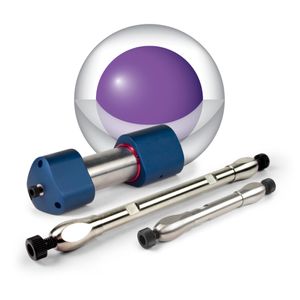GoT-ChA! - Assessing How Mutations Affect DNA Structure in Single Cells
Scientists have created a new technique that can assess how mutations in the genome influence the packaging of DNA in cells. The genome is massive, and has to be carefully wrapped around proteins so that it will be compact enough to fit inside of the nucleus of a cell. But genes also have to be accessible when they are active, so that packaging is very important. Structural changes in the genome can affect the patterns of gene expression in cells, and those changes are part of the epigenome. Epigenetics refers to changes in the genome that alter gene activity without changing the sequence of DNA. Epigenetic influences can also have a major impact on health and disease.
This new method, which is called GoT-ChA for "genotyping of targeted loci with single-cell chromatin accessibility," can also be integrated with data from single-cell analysis tools to reveal even more information about cells. The researchers have demonstrated how it can be used to study the impact of mutations on rare blood cancers. The findings have been reported in Nature.
"This new technique should permit broad future explorations of the links between mutations and epigenetic alterations in the context of cancers and related conditions," said senior study author Dr. Dan Landau, a professor at Weill Cornell Medicine among other appointments.
Researchers once had to analyze all of the cells in a particular sample or tissue together, and study data that was obtained from large batches of cells. But major advancements in lab techniques now allow scientists to analyze cells at the individual level, which can capture far more crucial details about biology.
With GoT-ChA, researchers can identify specific genetic mutations, and combine that with a map of locations where the genome is physically accessible for gene transcription, a state known as chromatin accessibility.
GoT-ChA was used to assess blood samples from patients with two rare types of blood cancers: myelofibrosis, and polycythemia vera. A mutation in a gene called JAK2 is known to promote these cancers, but the mutation is also found in some healthy individuals.
The maturation of blood cells is disrupted in these cancers, suggesting that mutations in JAK2 can affect the epigenome. GoT-ChA revealed the ripple effects of JAK2 mutations.
"It was thought that in myelofibrosis, for example, bone marrow inflammation is driven by the marrow microenvironment, but we discovered that inflammatory changes in blood stem cells directly result from the JAK2 mutation and also depend on the cell type," said Landau.
Drugs that inhibit JAK2, which are now in development, could be useful treatments as well, Landau added.
GoT-ChA could be applied to mutations that are only present in a small number of cells in a tissue or organ, but which may have a broad impact.
Sources: Cornell University, Nature




















































